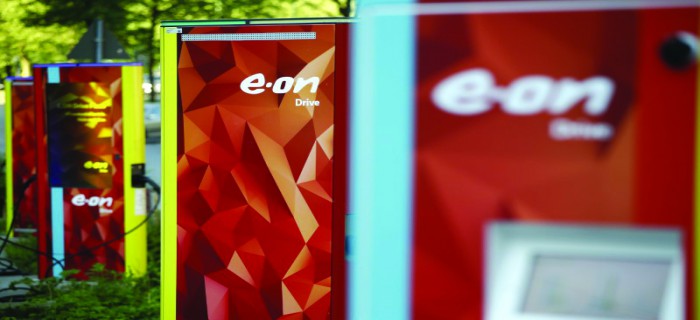
E.ON's German Energy Retail Unit Says it Added 50,000 Clients in H1
E.ON Energie, with six million existing customers, is among the biggest players in a retail market with 40 million end distribution accounts and around 1,280 players in electricity and 970 in gas.
German utility E.ON said it had added more than 50,000 retail electricity and gas customers in the first half of 2018 as a strategy aimed at attracting households to buying additional services was paying off.
"Customer expectations are changing," Victoria Ossadnik, head of Munich-based sales firm E.ON Energie Deutschland, said.
"We do not just supply power and gas, but products that offer additional value to make the home intelligent and ready for decentralised energy supply," she said in an interview.
E.ON Energie, with six million existing customers, is among the biggest players in a retail market with 40 million end distribution accounts and around 1,280 players in electricity and 970 in gas.
A shake up of Germany's utility sector has made the search for new revenue and profit sources more acute.
E.ON in a major swap transaction with rival RWE, taking place next year, will split up RWE subsidiary Innogy to make E.ON a grid and downstream giant, and leave RWE with production from conventional fuels and renewable energy.
E.ON Energie Deutschland is part of E.ON's retail customer base across Europe that with the deal will swell to 50 million.
The German unit is making use of different sales channels, for example grocery chain Lidl and TV channel ProSiebenSat1, said Ossadnik, who joined the utility from Microsoft Deutschland.
E.ON found younger customers were keen on purely renewable energy, which was possible for the E.ON unit as it also markets power on behalf of green producers in the wholesale market, gaining access to large volumes.
Among expanding profit areas, she listed smoke detectors, home produced solar power, batteries and charging kits for electric cars.
E.ON is among the top five suppliers and operators of rooftop photovoltaic systems.
E.ON and its peers need to get away from pure commodity supply and understand customer wishes better if they wanted to tap into future growth pools, Ossadnik said.
"A Me-too Product alone, or basing a business model on selling power more cheaply in a certain region, is not a way to succeed in the long term," she said, adding that customers, thanks to additional services they signed up to, were becoming more valuable individually.
E.ON is due to report first half results on Aug. 8.

.gif)
.jpeg)
leave your comment